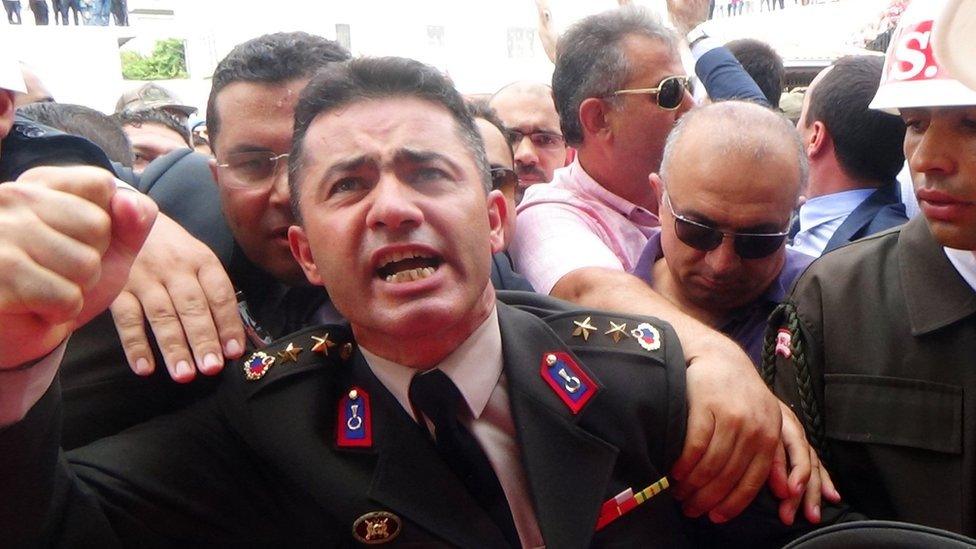Turkey Kurds: Grim reports from Cizre
- Published
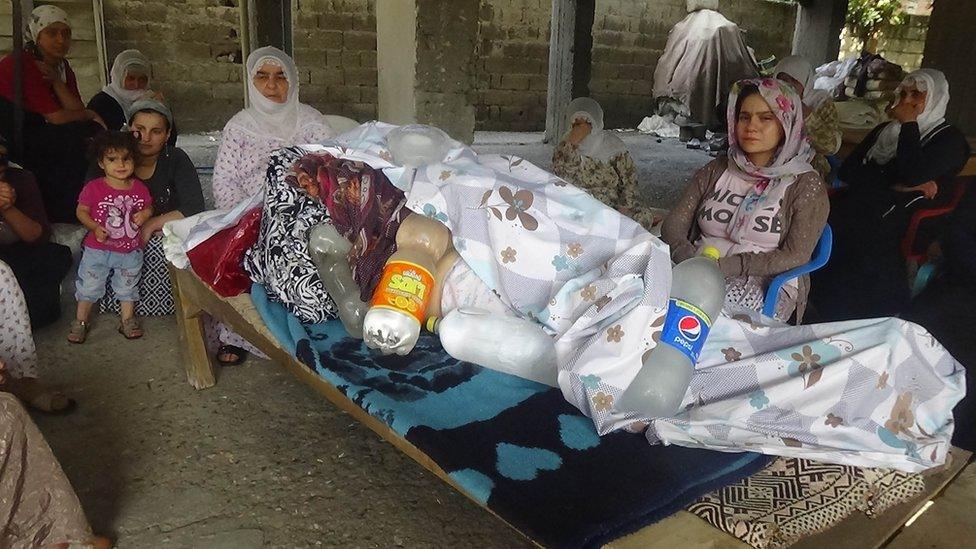
The body of Meryem Sune, 53, could not be buried for two days
A 53-year old mother of seven, Meryem Sune's body rests on a desk, wrapped in white cloth and bed sheets.
What is unusual about the picture taken in Cizre, a predominantly Kurdish town in south-eastern Turkey, are the bottles of ice surrounding her body.
Ms Sune was hit by shrapnel and died of her injuries, as she was not allowed into hospital for treatment, local reports say - due to a curfew declared over a week ago.
She could not be buried for two days and her body was first kept cold by ice bottles, and then in the freezer of a chicken shop.
Turkey's Interior Ministry said over 30 militants have been killed in Cizre in clashes between the security forces and Kurdish militant group PKK's youth wing.
But the pro-Kurdish People's Democratic Party (HDP) claim at least 20 of the dead were civilians.
Sibel Yigitalp, an HDP MP currently in Cizre, told the BBC an account of a family coming under fire.
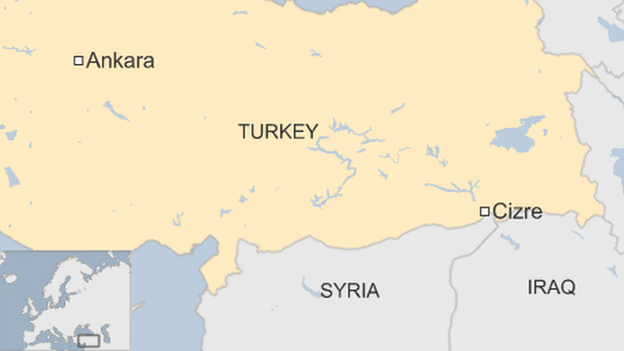
"Zeynep Taskin's husband was working abroad as a truck driver," she said. "She wanted to give him a call. But they did not have a phone at home. So she went to her neighbour's house."
"As she was at the doorstep of her home with her baby in her arms, they came under fire. The baby fell to the floor, wounded in the ear and leg."
According to local reports, Ms Taskin and her mother-in-law Masallah Edin, who came to help her, were killed by sniper fire. There were two other people wounded in the same family.
"We called the hospital's emergency services. They said they couldn't come due to security concerns," Ms Yigitalp said. The bodies are reportedly kept in cold storage depots.
The Turkish government denies allegations of civilian deaths in Cizre.
In a televised interview, Prime Minister Ahmet Davutoglu said "not even one civilian died" in the town and stated that the curfew would continue as long as necessary.
Mr Davutoglu insisted the people of Cizre were being looked after and that the bakeries in the town would be kept open.
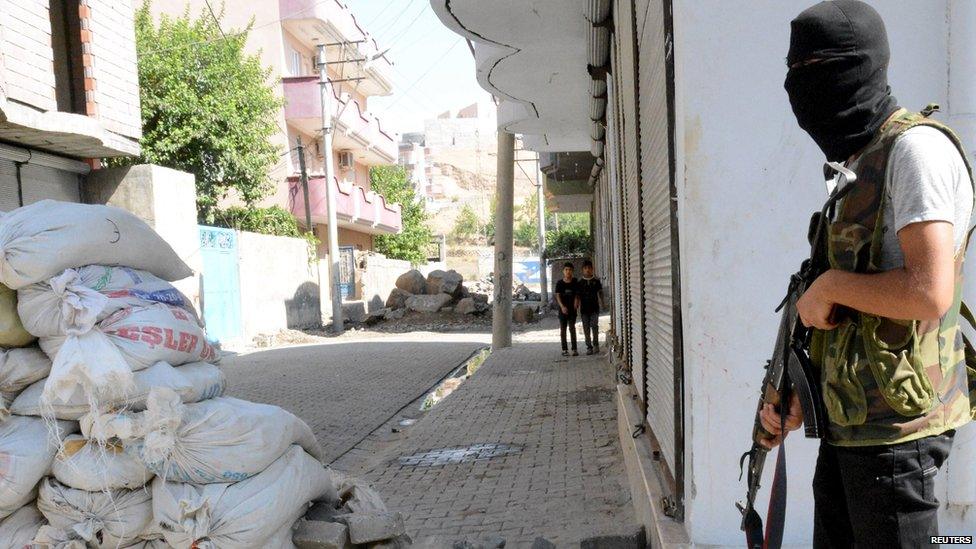
Kurdish militants have attempted to block security forces accessing the town
However, accounts from Cizre contradict his comments.
Bozo Acar, who works for an NGO, says there are power cuts in certain parts of town, there is no water, and food in many homes is running out.
"There is a tragedy here. People are suffering. There are continuous clashes. Bombs go off. No-one can go out. The government says basic needs are attended to but people here are starving," he says.
Many similar accounts of what has been going on in Cizre are shared on social media. The hashtag #CizreUnderAttack has become one of the most trending topics worldwide on Twitter.
The local governor was not available to speak to the BBC to deny or confirm these reports.
In August, Cizre declared a status of "self-rule", in response to the ongoing operations against the PKK and the detaining of local officials.
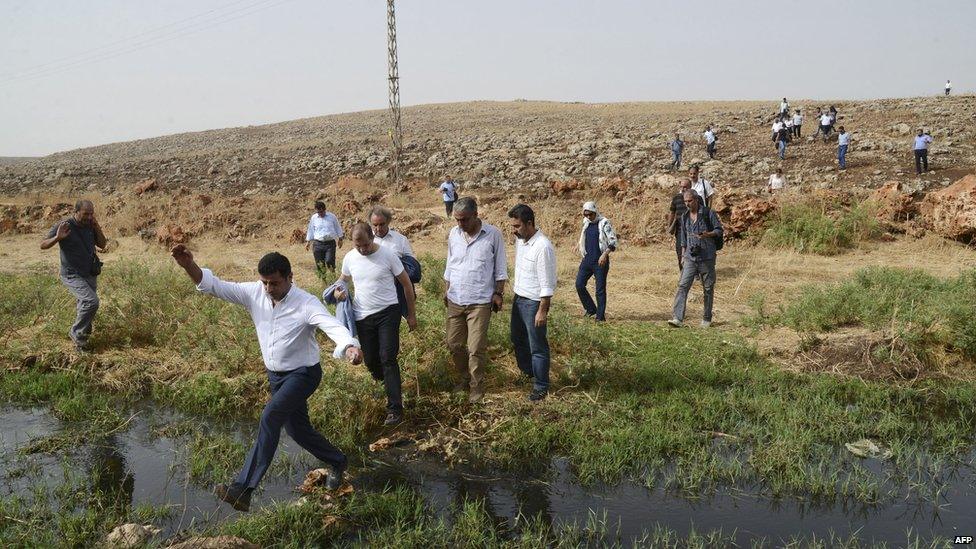
Pro-Kurdish politicians tried to walk to Cizre, but were blocked by Turkish police
Militants from the youth wing of the PKK - the HPG - blocked roads and dug ditches to prevent the security forces from getting into town.
The Turkish government says the operations are aimed at clearing mines from these roads, closing the ditches and maintaining people's safety and security.
On Thursday, a delegation of 30 HDP lawmakers, including the party's co-leader Selahattin Demirtas, were stopped as they tried to reach the town on foot.
Ertugrul Kurkcu, one of the delegation, told the BBC they wanted to go to Cizre to prevent what they called "atrocities against the civilians".
"For the last seven days, and for 24 hours a day, there has been a curfew in place. I don't think we've seen anything like this even in Gaza. People in Cizre have been living in hell," he said.
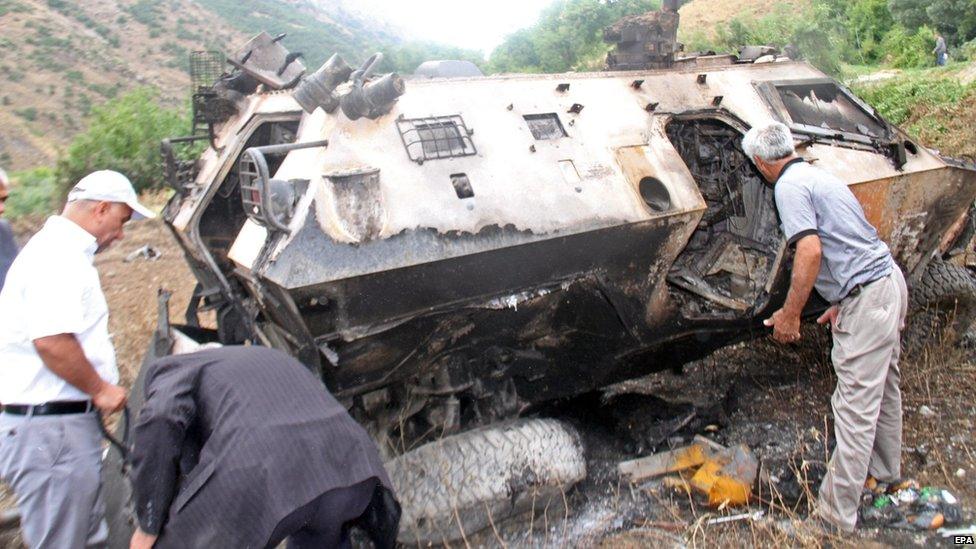
The operation in Cizre follows an attack on the Turkish army by Kurdish militants
Critics accuse the government of "punishing" Cizre, as 85% of the town voted for the HDP in the June elections.
The HDP's success had cost the governing AKP its parliamentary majority.
Snap elections have been called for 1 November and concerns are being voiced about the security of the poll, especially in the predominantly Kurdish east and south-east of the country.
Ertugrul Kurkcu said that if the violence in Cizre did not end soon it might set an example for other areas.
"If the situation carries on like this, every town where the HDP got huge support in June elections will be treated in the same way. We think that will have terrible consequences," he said.
- Published9 September 2015
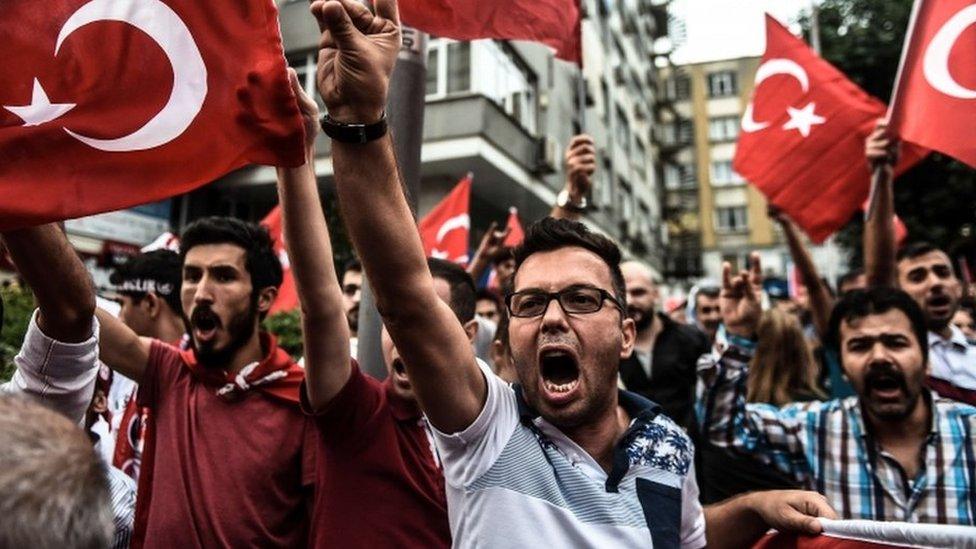
- Published9 September 2015
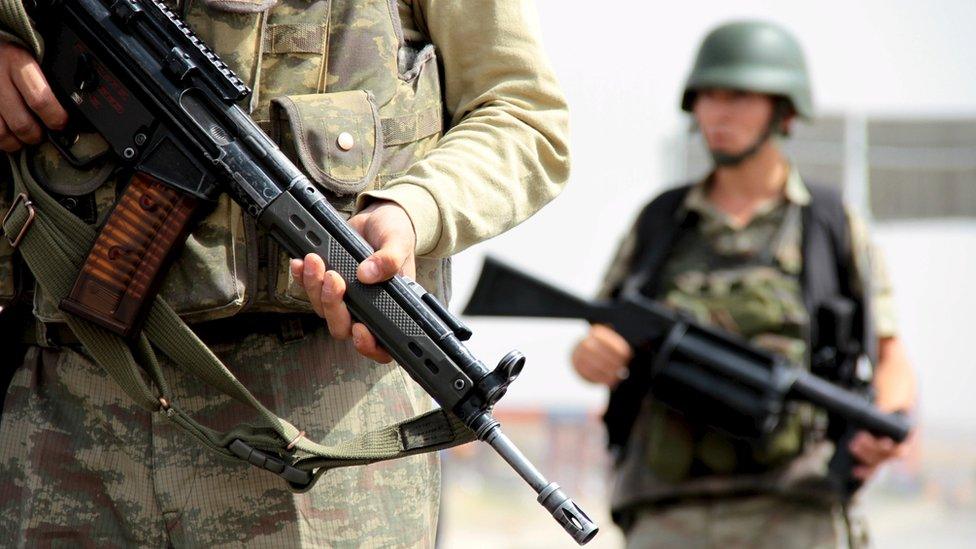
- Published2 September 2015
